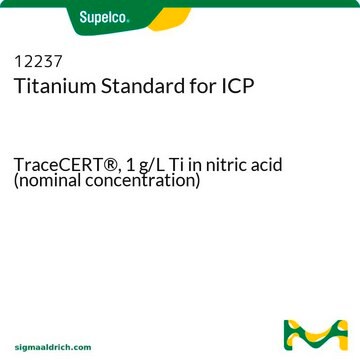86545
N,N,N′,N′-Tetraacetylethylenediamine
technical, ≥90% (CHN)
Synonym(s):
TAED, N,N′-Ethylenebis(diacetamide)
Sign Into View Organizational & Contract Pricing
All Photos(1)
About This Item
Empirical Formula (Hill Notation):
C10H16N2O4
CAS Number:
Molecular Weight:
228.25
Beilstein:
1795711
EC Number:
MDL number:
UNSPSC Code:
12352100
PubChem Substance ID:
NACRES:
NA.22
Recommended Products
grade
technical
Quality Level
Assay
≥90% (CHN)
form
crystals
functional group
amide
imide
SMILES string
CC(=O)N(CCN(C(C)=O)C(C)=O)C(C)=O
InChI
1S/C10H16N2O4/c1-7(13)11(8(2)14)5-6-12(9(3)15)10(4)16/h5-6H2,1-4H3
InChI key
BGRWYDHXPHLNKA-UHFFFAOYSA-N
Related Categories
Application
N, N, N′, N′-Tetraacetylethylenediamine (TAED) can be used as a reagent:
It can also be used as a peroxide bleach activator in laundry detergents and in textile chemistry applications.
- Along with sodium perborate and sodium bicarbonate for the oxidation of primary aliphatic amines to aliphatic C-nitroso compounds.
- In combination with sodium percarbonate to deliver peracetic acid in situ for Baeyer-Villiger oxidation.
It can also be used as a peroxide bleach activator in laundry detergents and in textile chemistry applications.
Storage Class Code
11 - Combustible Solids
WGK
WGK 1
Flash Point(F)
Not applicable
Flash Point(C)
Not applicable
Personal Protective Equipment
dust mask type N95 (US), Eyeshields, Gloves
Choose from one of the most recent versions:
Already Own This Product?
Find documentation for the products that you have recently purchased in the Document Library.
Customers Also Viewed
N,N,N',N'-Tetraacetylethylenediamin and sodium percarbonate reagents as an in situ produsing of peracetic acid for Baeyer-Villiger oxidation of ketones.
M.Hashemi, Mohammed and Khezri, S.Hadi
Organic Chemistry: An Indian Journal, 2(4), 56-59 (2006)
Kinetics of the hydrolysis and perhydrolysis of tetraacetylethylenediamine, a peroxide bleach activator
Martin D, et al.
J. Chem. Soc. Perkin Trans. II, 2(10), 1549-1552 (1991)
Oxidation of primary aliphatic amines with sodium perborate
Zajac Jr WW, et al.
Tetrahedron Letters, 30(47), 6495-6496 (1989)
Hygiene effects of bleach systems in laundry detergents.
Sajitz, M and Grohmann, J
SOFW Journal, 137(10), 1549-1552 (2011)
Ticiane Taflick et al.
International journal of biological macromolecules, 101, 553-561 (2017-03-23)
The isolation of cellulose nanocrystals from different lignocellulosic materials has shown increased interest in academic and technological research. These materials have excellent mechanical properties and can be used as nanofillers for polymer composites as well as transparent films for various
Our team of scientists has experience in all areas of research including Life Science, Material Science, Chemical Synthesis, Chromatography, Analytical and many others.
Contact Technical Service










